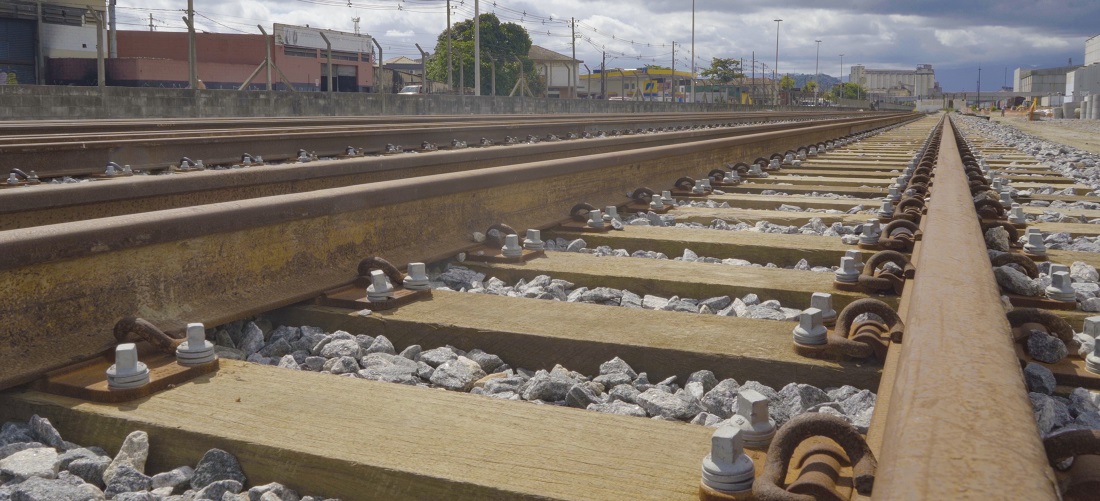
VLI’s New Locomotives Set to Increase Cargo Flow at Port of Santos
Aug, 05, 2024 Posted by Gabriel MalheirosWeek 202432
VLI has acquired 12 new ES-43BBI locomotives to expand the logistics capacity of Centro-Atlântica Railroad (FCA), Brazil’s largest railway network. The locomotives, purchased from Wabtec Brasil, represent an investment of R$300 million.
Highlighting the significance of this corridor for export and import logistics, FCA and North-South Railway (FNS), both operated by VLI, transported a combined 43.8 billion ton-kilometers (TKU) in 2023. Of this, 43 million tons were transported through Brazilian ports, with 13 million tonnes through the Port of Santos.
Nicolas Szwako, VLI’s Southeast Corridor Operations Director, stated that the company is committed to expanding FCA’s cargo throughput capacity to meet its customers’ current and future needs.
“By promoting rail freight transportation, we generate positive impacts on the environment, the national economy, and the Brazilian export agenda,” added him.
The expansion of FCA’s logistics capacity and efficiency is part of VLI’s plan for the early renewal of its concession for another 30 years, which is currently under review by regulatory agencies. This renewal is expected to increase cargo movement by approximately 30% to 40% across all FCA routes, not just the Southeast Corridor.
FCA’s rail lines are crucial for integrating the Northeast, Central-West, and Southeast regions, connecting seven states and the Federal District. In addition to FCA, VLI controls the Northern Section of FNS and operates integrated terminals for loading and unloading products in São Luís, Barra dos Coqueiros, São Gonçalo do Amarante, Vitória, and Santos.
Tiplam Terminal
FCA’s Southeast Corridor serves the Santos region, where VLI operates the Luiz Antônio Mesquita Multimodal Terminal (Tiplam) at the Port of Santos. Tiplam, a private terminal (TUP), handles soybeans, corn, sugar, and fertilizers. In 2023, Tiplam saw 13 million tons, a 12% increase from the previous year.
Nicolas Szwako emphasized Tiplam’s robust infrastructure for storing products and loading/unloading trains and ships, noting that its export operations are entirely rail-based.
Land Access Challenges
Transportation engineering specialist and A Tribuna columnist Luis Montenegro pointed out that logistical efficiency hinges on land access, which urgently requires investment at the Port of Santos. “Land access is a major bottleneck, perhaps even more critical than sea access,” he stated.
According to the Santos Port Authority (APS), the Internal Railway of the Port of Santos (Fips) currently transports 51 million tons annually, with a goal to increase this to 115 million tons per year. Achieving this target will require AG-Fips, the line’s concessionaire, to invest R$1 billion in infrastructure over five years.
Montenegro estimates that more investments will be necessary with the port’s progressive annual growth. “With these investments, the port should reach a rail capacity of around 110 million tons per year, in addition to the 110 million tons transported by road, totaling 220 million tons annually. Considering the port’s average growth of 5% per year, this capacity will be exhausted in a few years.”
Concession Renewal
The expansion of FCA’s logistics capacity and efficiency is a key element in VLI’s ongoing efforts to renew its concession for another 30 years. This renewal aims to boost cargo movements by 30% to 40%, encompassing all FCA flows.
Source: A Tribuna
Click here to access the original news article: https://www.atribuna.com.br/noticias/portomar/porto-de-santos-sera-beneficiado-por-ampliac-o-logistica-de-ferrovia-1.429138
-
Other Cargo
Apr, 18, 2022
0
Despite the conflict, Brazil continues to receive Russian fertilizers
-
Other Cargo
Jun, 18, 2021
0
CEPEA: Dairy imports grew 14.5% in one month
-
Ports and Terminals
Jun, 24, 2019
0
Bangladesh plans to import US$1bn in goods from Brazil
-
Ports and Terminals
Apr, 06, 2021
0
Underwater tunnel project between Santos and Guarujá advances



